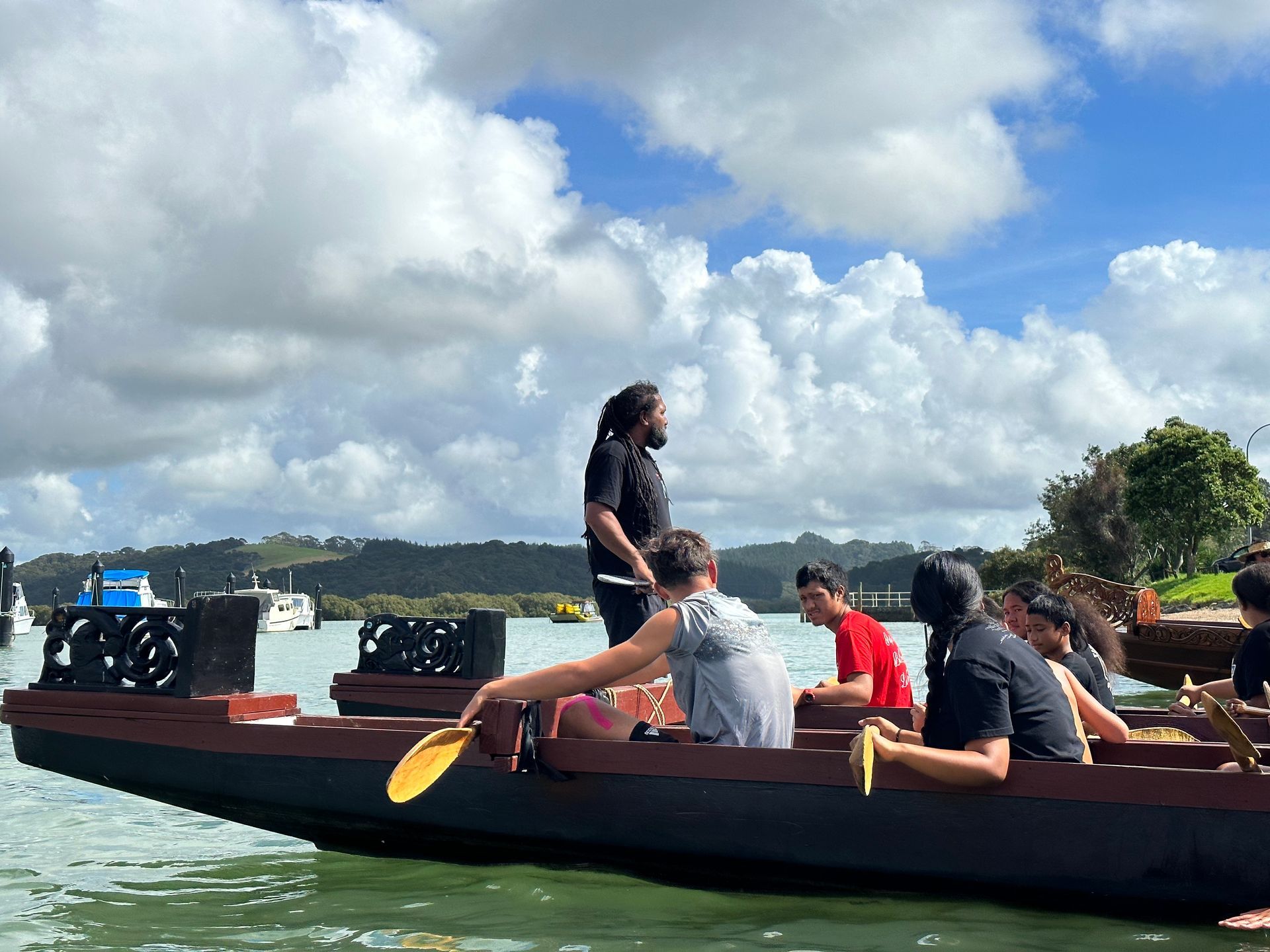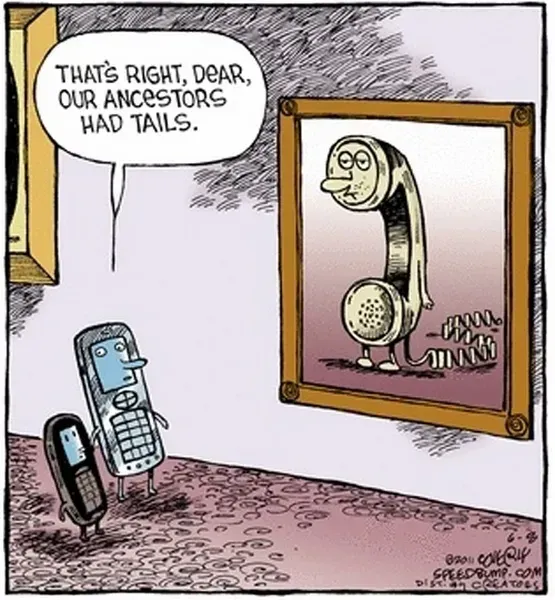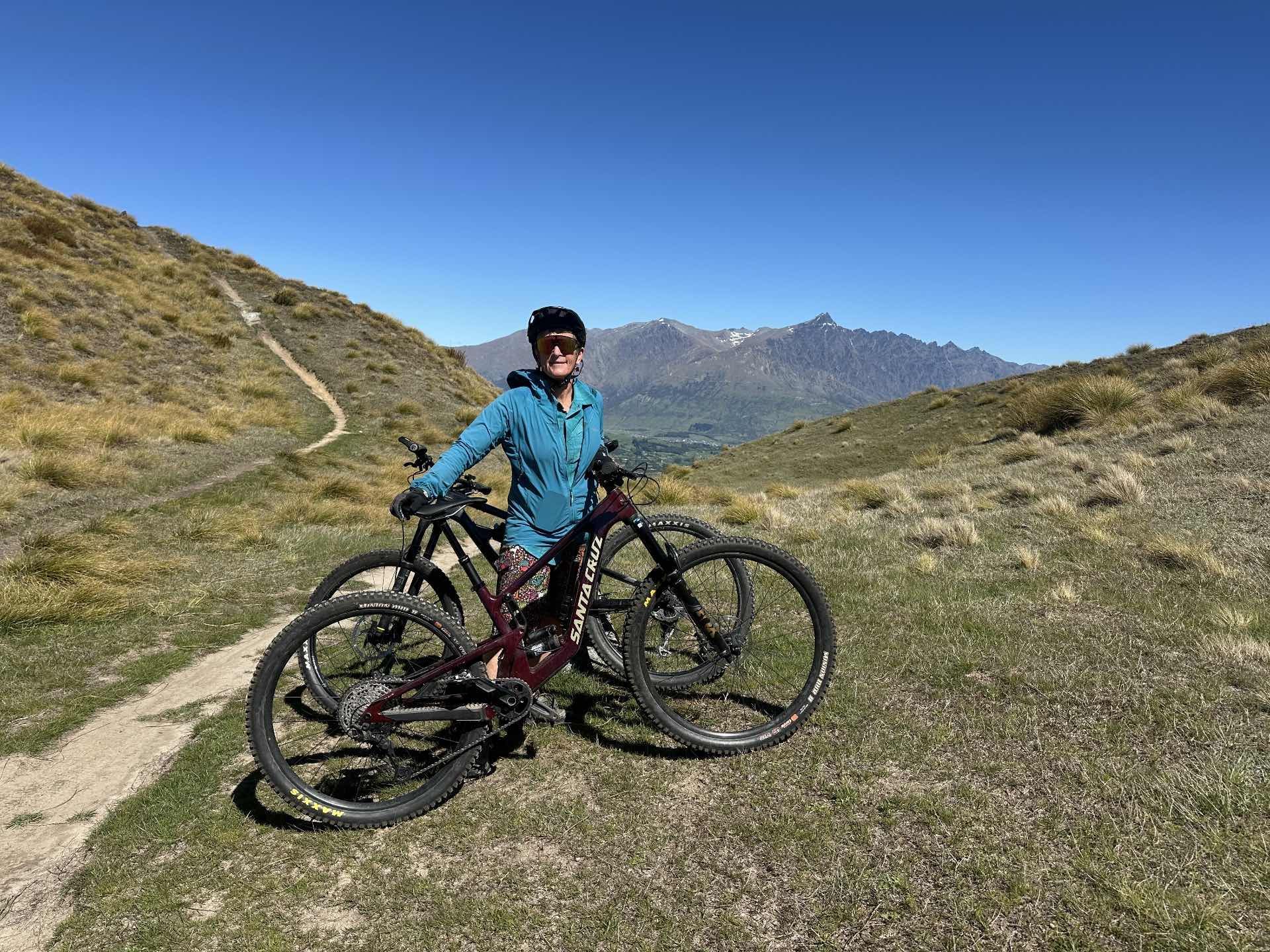Waka paddling

I've been thinking more about connections between people. We're in Waitangi at the 200th anniversary of Chris's family arriving in New Zealand, together with around 800 attendees. We went waka paddling – waka are used as a metaphor for people being together and in accordance ... a waka goes nowhere unless people are paddling in the same direction.
Chris is descended from the missionaries William Williams and Henry Williams. Henry and his wife Marianne arrived in New Zealand in 1823, and William – who is Chris's great great grandfather – arrived with Jane in 1826. Henry came to " ... cure souls in his majesty's foreign possessions!" Henry decided that Samuel Marsden, who founded the mission at Paihia where Henry settled, put too much emphasis on 'civilising' Māori (teaching skills in agriculture) and that the important task was bringing Māori to Christianity. As a result, Henry pushed mission members to learn te reo Māori and spend more time preaching in the surrounding area and teaching in mission station schools.
The arrival of brother William sped up Henry's process, because William was a linguist. He translated the Scriptures into Māori to aid their missionary efforts. He published 'A dictionary of the New Zealand Language' at Paihia in 1844. In contrast, Henry's forceful personality and discipline led to his involvement in resolving disputes between hostile Māori groups, and gave him growing mana in the eyes of the Māori with whom the mission worked. One of their KPIs was numbers of Māori baptised and, by 1842, they had achieved a total of over 3000.
In 1840, Henry had a central role in translation of the Treaty of Waitangi and convincing Māori leaders to sign it. William also was instrumental in convincing chiefs to sign the Treaty. Neither brother had an intrinsic interest in Māori culture. William supposedly disapproved of Māori social customs, despite his interest in the language. Henry's strong adherence to evangelical Christianity severely constrained his ability to understand any culture other than his own. Over time, Henry expanded his work in Northland while William moved to the location of Gisborne in 1839, as they extended their practice of conversion. William and remained in Poverty and then Hawke's Bay for the rest of his life.
The descendants of the two brothers comprise a very large gathering, from many parts of the globe. The family has been welcomed onto the Waitangi marae, where Henry Williams is carved at the base of the central pou of the wharenui. His features and round glasses markedly differ from other figures in the carvings. For me one of the most confusing logics in the opening speeches were the statements about the negative influence of colonisation on the Māori people, while thanking the Williams for bringing Christianity. The majority of the speakers were Bishops, so it isn't surprising they are thankful for the bringing of Christianity. However, I find it very hard to get my head around people being angry their culture was stolen, while wanting to hang onto one of the most questionable parts of Western culture that was foisted upon them (in my opinion, obviously).
However, back to connections and paddling in the same direction. A gathering of this sort facilitates people connecting and reconnecting - across immediate family, New Zealand, internationally, and between the descendants of Northland iwi and the descendants of the people who colonised Northland. In the speeches, it has been repeatedly said that the groups need to move forward together. And that the celebration is a forum in which discussions can be held regarding how best to move forward collaboratively.
Human beings make connections best when they meet with each other, in person. All other forms of meeting can result in connections, but I find it hard to doubt that anything replaces or parallels meeting in physical form. One basic part of connecting in person is that it is a whole lot harder to dislike someone in person than it is in theory. So much more effort is required to dislike someone you are talking with and sharing food with. Even more effort is required when they are feeding you! On social media, it is so very easy to criticise, undermine and attack people with whom you feel little more connection than as a cipher on the page. If you don't like what they say back, you avoid reading it! If they are on the other side of the table, the whole way you approach them, and discussions with them, is different.
Another aspect of making connections in person is that we are limited in time and space, so we make connections with those with whom we can gather, excluding many other people. This family gathers together which, by definition, excludes other families, doesn't it? However, that's not quite true – this gathering includes all the partners of the descendants of the Williams, and links in that way much more broadly across New Zealand and internationally. Further, the gathering extends into other communities, through the church and the iwi who are connected by the actions of the Williams brothers and their missions.
Without detailed scientific analysis, or redress to published papers, I am confident there is intrinsic worth in such networking between groups. This is how the world works at its best. When groups are connected with other groups who are connected with other groups. When our world feels like two degrees of separation is as far as you get from another human being. That is one of the best things about New Zealand – it's rare to not find a two degrees of separation connection with a New Zealander you meet. We feel like we know each other, to some degree. We feel our groups are connected. We feel a sense of responsibility to one another, because we aren't that far apart.
And that's my thesis (or sermon?) for today. However, I'm not yet done with connection – you can wait with bated breath (or not) because next week I want to think about the differing influences of science and arts on societal connectivity.






